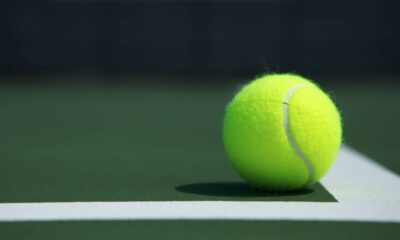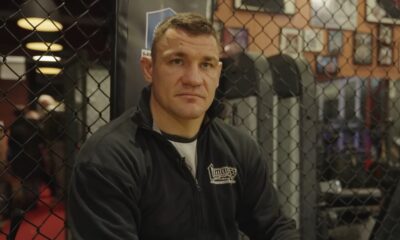Champions League
Shakhtar Donetsk in the Russian league? It doesn’t exist. How will the Russian aggression affect Ukrainian football?
Russia on Monday recognised the independence of two Donbass republics, breaking international agreements. However, the conflict has been going on since 2014. It is not only the famous Ukrainian team Shakhtar Donetsk that has not played on its soil since then. What effect has and will Russian aggression have on Ukrainian football? In an interview with Ruik, expert Andrew Todos commented on the situation.

Russia on Monday recognised the independence of two Donbass republics, breaking international agreements. However, the conflict has been going on since 2014. It is not only the famous Ukrainian team Shakhtar Donetsk that has not played on its soil since then. What effect has and will Russian aggression have on Ukrainian football? In an interview with Ruik, expert Andrew Todos commented on the situation.
The whole world is now dealing with the actions of Russia, which is questioning the sovereignty of Ukraine and is the only one to have recognised the independence of the Donetsk People’s Republic and the Luhansk People’s Republic, thus breaking more than one international agreement.
However, the territory of the Donbas has been at the centre of the conflict for several years, more precisely since 2014, when Russia occupied Crimea. Even then, the war began to affect Ukrainian football.
The conflict is not only about Shakhtar Donetsk
As already mentioned, Donbas has been a war zone for several years. In addition to Shakhtar Donetsk, the conflict also directly affects the club Zorya Luhansk. While Shakhtar has been playing in Kiev since 2020 and used to play in Lviv or Kharkiv in the past, Zorya has been playing directly in Zaporizhzhya since 2014.
Twenty kilometres from the frontline, FC Yarud Mariupol still play at their stadium, and fifty kilometres from the frontline FC Kramatorsk play at their stadium.
Whose side are the clubs on?
Given that the clubs in question come from an area where there is a large base of pro-Russian separatists, the question of whose side the clubs in question are actually on was raised.
“Shakhtar is clearly on the Ukrainian side. They obviously continue to play in Ukraine in the local league. In most cases, it tries to remain ‘neutral’ and avoids politics. Shakhtar’s ultras are pro-Ukrainian, many of them fought in the war. Thesame can be said about the ultras of Zorya Luhansk,” Andrew Todos, who writes about Ukrainian football for Sky Sports and BBC Sport, told Ruik.
In addition, a large group of Shakhtar fans left Donetsk along with the club. However, as the club tries to be as apolitical as possible, it does not comment on the situation, but the fans do it for them.
Ukrainian club FC Kryvbas has called on Ukrainian clubs to unite and change their signs to support Ukraine. Some have already done so.
Shakhtar Donetsk owner Rinat Akhmetov may have recently left Ukraine, but has now returned to attend a meeting with the Ukrainian president along with other billionaires. He told the Ukrainian media that he will help by investing billions of dollars to boost the Ukrainian economy. He will also donate money for the country’s defence.
Are the clubs in danger? Are they in danger of being moved to the Russian league?
As the Russians are, in their words, “liberating” Donbas, there have been jokes on social media that Shakhtar Donetsk will be the best Russian team from the new season, or that this means the end of regular title wins. However, this scenario is unrealistic.
“UEFA would block such a move, as it did with all similar attempts in occupied Donbas/Crimea. Neither team is eligible to play in the Russian football system. Shakhtar would not even accept an offer to play in Russia,” Andrew Todos is clear.
He says Shakhtar and Zorya don’t have to worry about the conflict that much. After all, both clubs have moved and have relatively wealthy owners. It is different in the case of Mariupol and Kramatorsk.
“If Vladimir Putin tries to conquer these cities or threatens them in some way, Mariupol and Kramatorsk could be in danger. It is uncertain whether the clubs would survive. They have much less funding than Shakhtar or Zorya,” Todos said.
Will Shakhtar ever return to Donetsk? Pro-Russian separatists dream of a Russian league
“Shakhtar made Donetsk famous all over the world, it was like the crown jewel. TheEuro 2012 was played in its stadium, and with one of the most modern stadiums in the world, the club had great prospects,” Andrew Todos explained the importance of the club for the region.
It’s no secret that Shakhtar’s owner Rinat Akhmetov, who employed over 300,000 people in his businesses, has been a major contributor to the development of the mining region in particular; moreover, as the richest Ukrainian, he has donated considerable funds to charitable causes, despite being a controversial figure.
There is therefore much debate about whether Shakhtar will ever return to Donetsk. Some of the residents who have stayed in Donetsk no longer have much faith. They say that it is a club that has nothing to do with Donetsk anymore and only the name remains.
“Shakhtar moved permanently to Kiev in 2020. It made the most sense. Until then, he had been playing in Kharkiv and Lviv since 2014. The players live in Kiev and don’t have to travel for their home games,” Todos said.
It’s worth noting then that Shakhtar built its magnificent, modern and expensive stadium in 2008. It has now been nationalised by pro-Russian separatists, as have the properties and businesses that belonged to Shakhtar’s owner. Akhmetov has therefore been greatly impoverished. Yet, as mentioned above, he is now helping Ukraine.
The Donetsk People’s Republic even has its own league and national team, although neither is officially recognised. The pro-Russian-minded part of the population, along with the clubs, dream that the local teams will one day play in the Russian league. Igor Petrov, former captain of Shakhtar and Ukraine, is in charge of the local “association”.
Source: Ruik, Andrew Todos












